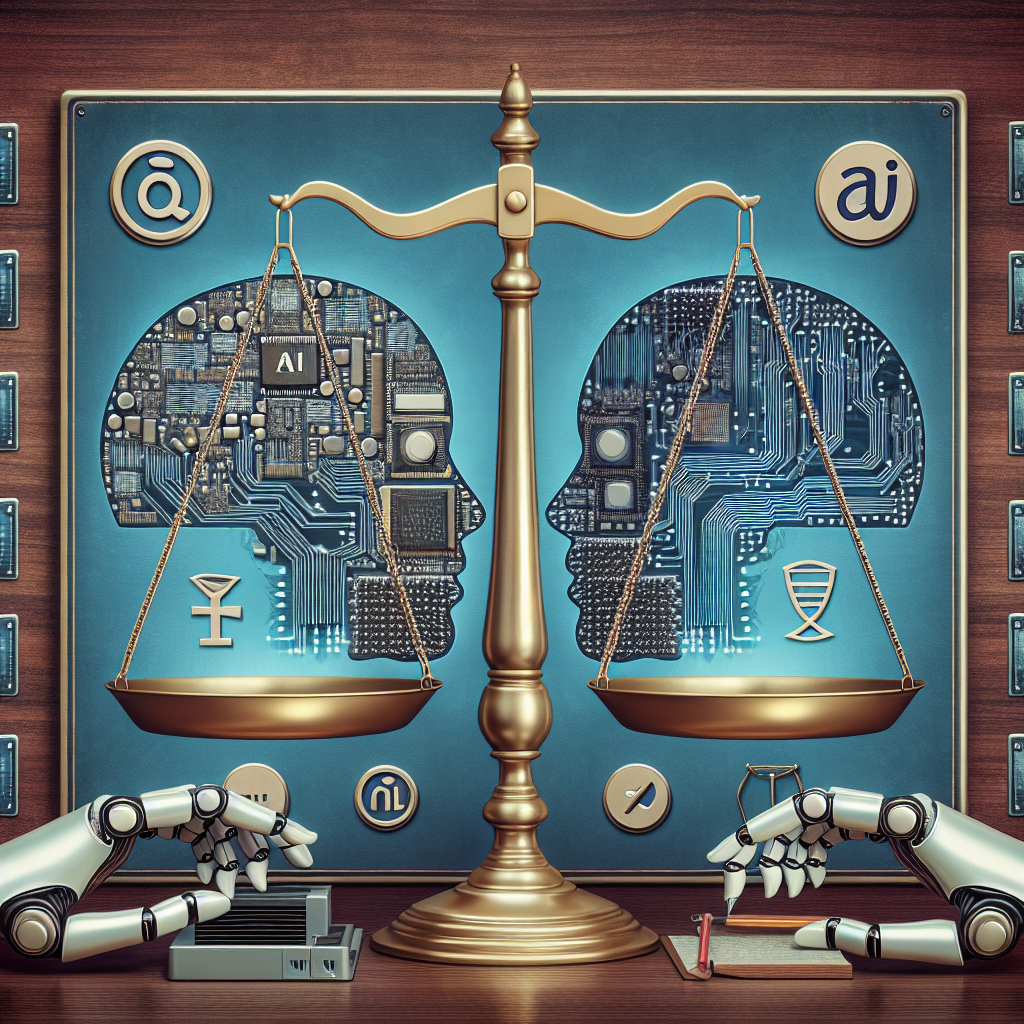The intersection of artificial intelligence (AI) and intellectual property (IP) law is a rapidly evolving and complex area of legal practice. As AI technologies become more advanced and integrated into various industries, the legal framework for protecting and regulating these innovations becomes increasingly important. In this article, we will explore the key issues and challenges at the intersection of AI and IP law, and discuss how legal practitioners can navigate this rapidly changing landscape.
What is AI?
AI refers to the development of computer systems that can perform tasks that typically require human intelligence, such as speech recognition, decision-making, and problem-solving. AI technologies use algorithms and machine learning techniques to analyze data, learn from patterns, and make predictions or decisions. Some common examples of AI applications include virtual assistants like Siri and Alexa, autonomous vehicles, and predictive analytics tools.
What is Intellectual Property Law?
Intellectual property (IP) law is a branch of law that protects the rights of individuals and organizations to their creations or inventions. IP law encompasses a range of legal rights, including patents, trademarks, copyrights, and trade secrets. These rights give creators and inventors exclusive control over their creations, allowing them to prevent others from using or reproducing their work without permission.
How Does AI Impact Intellectual Property Law?
AI technologies raise a number of complex legal issues at the intersection of IP law. One key issue is the question of who owns the intellectual property rights in creations or inventions made by AI systems. In traditional IP law, the creator or inventor of a work is typically considered the owner of the IP rights. However, in the case of AI-generated works, the question of ownership becomes more complicated.
For example, if an AI system creates a new artwork or invents a new technology, who owns the copyright or patent rights to that work? Is it the programmer who designed the AI system, the company that owns the AI system, or the AI system itself? These questions have yet to be fully resolved in many jurisdictions, and legal scholars and practitioners are actively debating the best approach to address these issues.
Another key issue at the intersection of AI and IP law is the question of how to protect AI technologies through patents and trade secrets. AI technologies often involve complex algorithms and data sets that are difficult to protect using traditional IP mechanisms. As a result, legal practitioners must develop new strategies for protecting AI innovations while balancing the need for transparency and collaboration in the AI research community.
Additionally, AI technologies raise concerns about the potential infringement of existing IP rights. For example, AI systems that analyze and generate content may inadvertently reproduce copyrighted works or infringe on trademarks. Legal practitioners must be vigilant in monitoring and enforcing IP rights in the rapidly evolving landscape of AI technologies.
How Can Legal Practitioners Navigate the Intersection of AI and IP Law?
Legal practitioners can navigate the intersection of AI and IP law by staying informed about the latest developments in AI technologies and legal trends. By staying up-to-date on emerging issues and best practices, legal practitioners can better advise their clients on how to protect and enforce their IP rights in the context of AI innovations.
One key strategy for navigating the intersection of AI and IP law is to develop clear and comprehensive IP policies and agreements that address the unique challenges posed by AI technologies. These policies should clearly define ownership of AI-generated works, outline procedures for protecting AI innovations, and establish mechanisms for resolving disputes over IP rights.
Legal practitioners can also work with clients to develop strategies for protecting AI technologies through a combination of patents, trade secrets, and copyrights. By understanding the strengths and limitations of each IP mechanism, legal practitioners can help their clients maximize the protection of their AI innovations while minimizing the risk of infringement.
Finally, legal practitioners can advocate for changes to existing IP laws and regulations to better address the challenges posed by AI technologies. By engaging with policymakers and industry stakeholders, legal practitioners can help shape the legal framework for protecting and regulating AI innovations in a way that promotes innovation and fairness.
Frequently Asked Questions:
Q: Can AI systems be granted patents?
A: In many jurisdictions, AI systems can be granted patents for inventions that meet the legal requirements for patentability, such as novelty, non-obviousness, and utility. However, the question of who owns the patent rights to AI-generated inventions remains a complex and unresolved issue in many jurisdictions.
Q: Can AI systems infringe on existing IP rights?
A: Yes, AI systems can inadvertently infringe on existing IP rights, such as copyrights and trademarks, by reproducing protected works or using protected symbols without permission. Legal practitioners must be vigilant in monitoring and enforcing IP rights in the context of AI technologies.
Q: How can legal practitioners protect AI technologies through IP law?
A: Legal practitioners can protect AI technologies through a combination of patents, trade secrets, and copyrights. By developing clear IP policies and agreements, legal practitioners can help their clients protect and enforce their IP rights in the rapidly evolving landscape of AI innovations.
In conclusion, the intersection of AI and IP law presents a number of complex legal challenges and opportunities for legal practitioners. By staying informed about the latest developments in AI technologies and legal trends, developing comprehensive IP policies and agreements, and advocating for changes to existing IP laws and regulations, legal practitioners can successfully navigate this rapidly changing landscape and help their clients protect and enforce their IP rights in the era of AI innovation.

